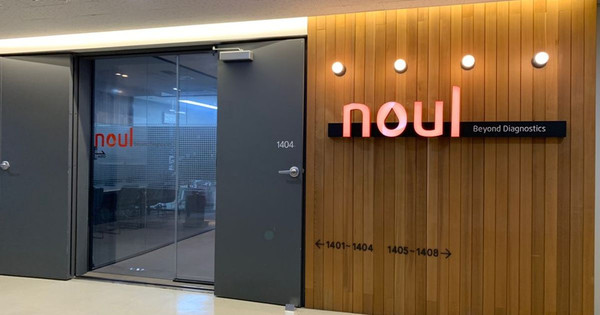Noul, a local medical diagnostic device company, has started developing an artificial intelligence-based diagnostic platform that helps researchers, here or abroad, to detect cancer within an hour of collecting samples.

The company expects the new platform to reduce costs and shorten the time compared to the existing diagnostic method that takes up to seven days.
Massachusetts General Hospital (MGH), Harvard Medical School, Yonsei University Health System (YUHS), and Asan Medical Center (AMC) will participate in the project. The government will also invest 4.5 billion won ($3.7 million) in the project over five years.
“The existing Fine Needle Aspiration (FNA) test method requires a histopathology room and a pathologist for cancer diagnosis,” the company said. “Therefore, a cancer diagnosis is possible only in some large hospitals and consigned institutions and takes about five to seven days to deliver the sample and receive the diagnosis result.”
Also, the inspection fee and the cost of running a dedicated agency are very high, the company added.
To resolve these problems, the company aims to develop an on-site cancer diagnosis system by developing a small diagnostic platform capable of preprocessing FNA samples, digital imaging, AI analysis, and remote diagnosis.
Noul plans to make a system that can completely automate the process from the sample collection stage to diagnosis by omitting the existing sample delivery and diagnosis process.
“MGH Harvard Medical University’s participation in the project will be very helpful as its research team has developed an image-based compact fluorescent cell analysis system, which can diagnose breast cancer within an hour by analyzing specific markers in breast cancer cells,” the company said.
To make the most of MGH’s participation in the project, Noul plans to use the U.S. institution’s original know-how, such as solid dyeing cartridge technology and the diagnostic platform miLab (Micro-Intelligent Laboratory).
By combining the technology of MGH and Noul, the two sides plan to develop a system that can not only perform Papanicolaou staining, the gold standard in cancer diagnosis, and immunostaining using biomarkers but also develop together an optimized digital imaging system.
Afterward, YUHS and AMC will use their various FNA samples to implement a deep learning algorithm to detect cancer cells.
“We will be able to commercialize the developed system after conducting phase 1 and 2 clinical trials at YUMS and AMC,” the company said. “When the system is commercialized, the company expects that rapid on-site cancer diagnosis will be possible even in primary hospitals or places that lack manpower and infrastructure.”
Noul CSO Steve Lee said, “By using the rapid cancer diagnosis platform, users will be able to finish consultation, examination, confirmation of results, and making treatment plans in one day.”
After completing the platform's development, the company plans to enter the global market, including the U.S., in collaboration with MGH, Lee added.

